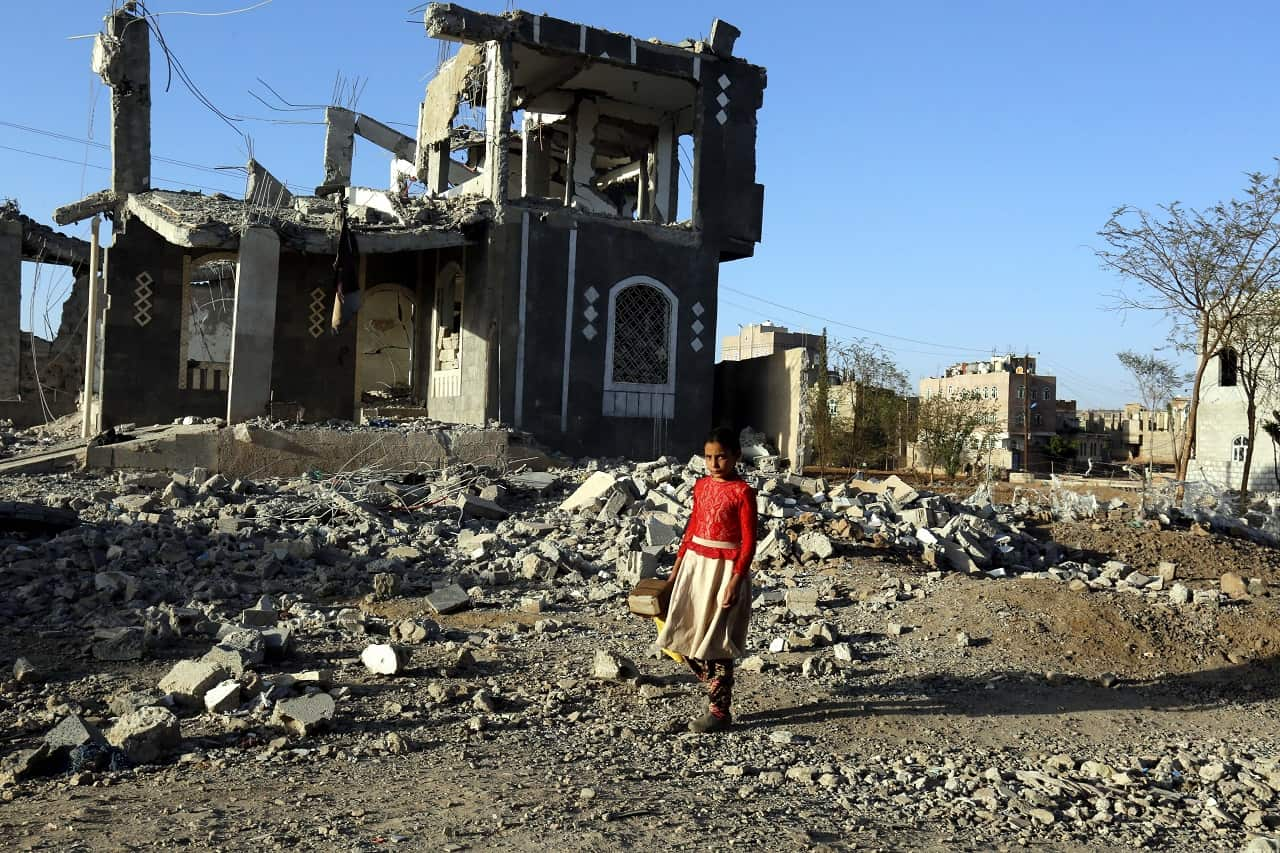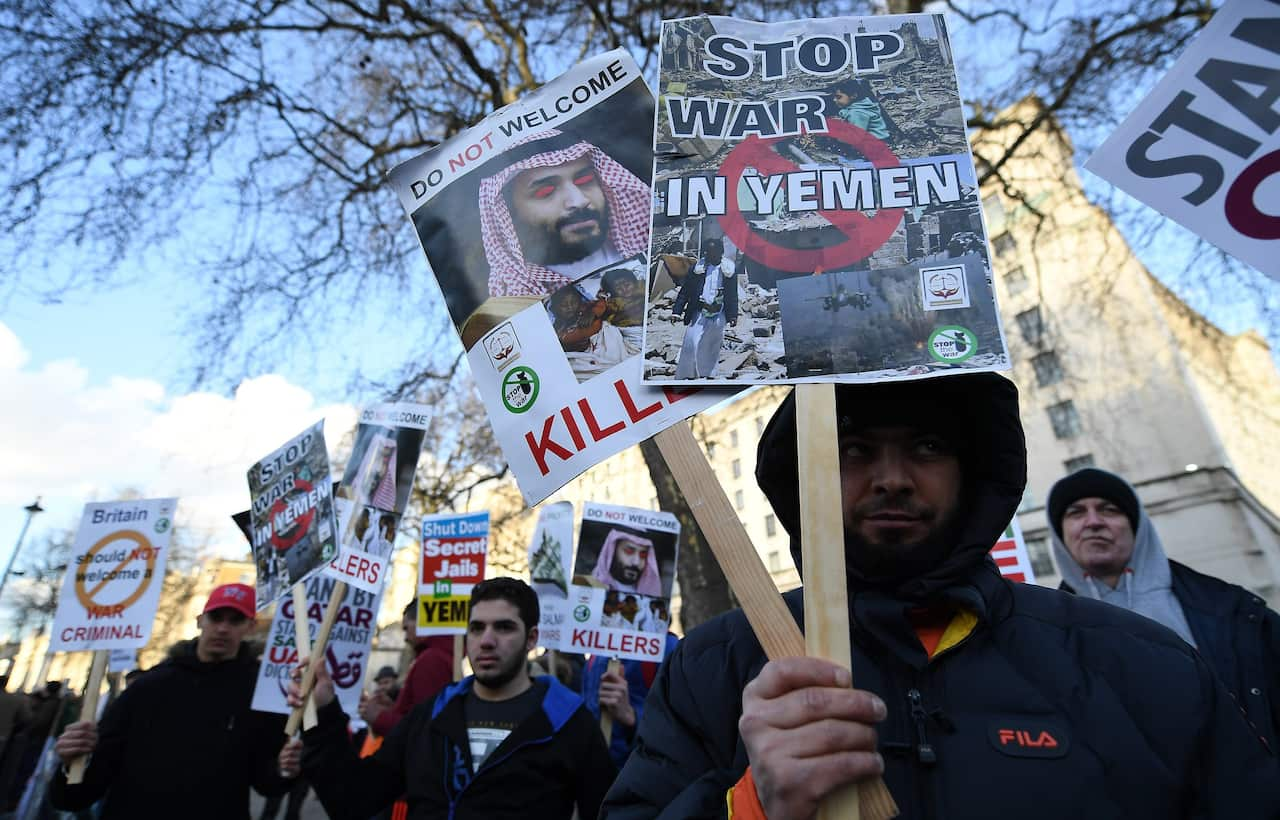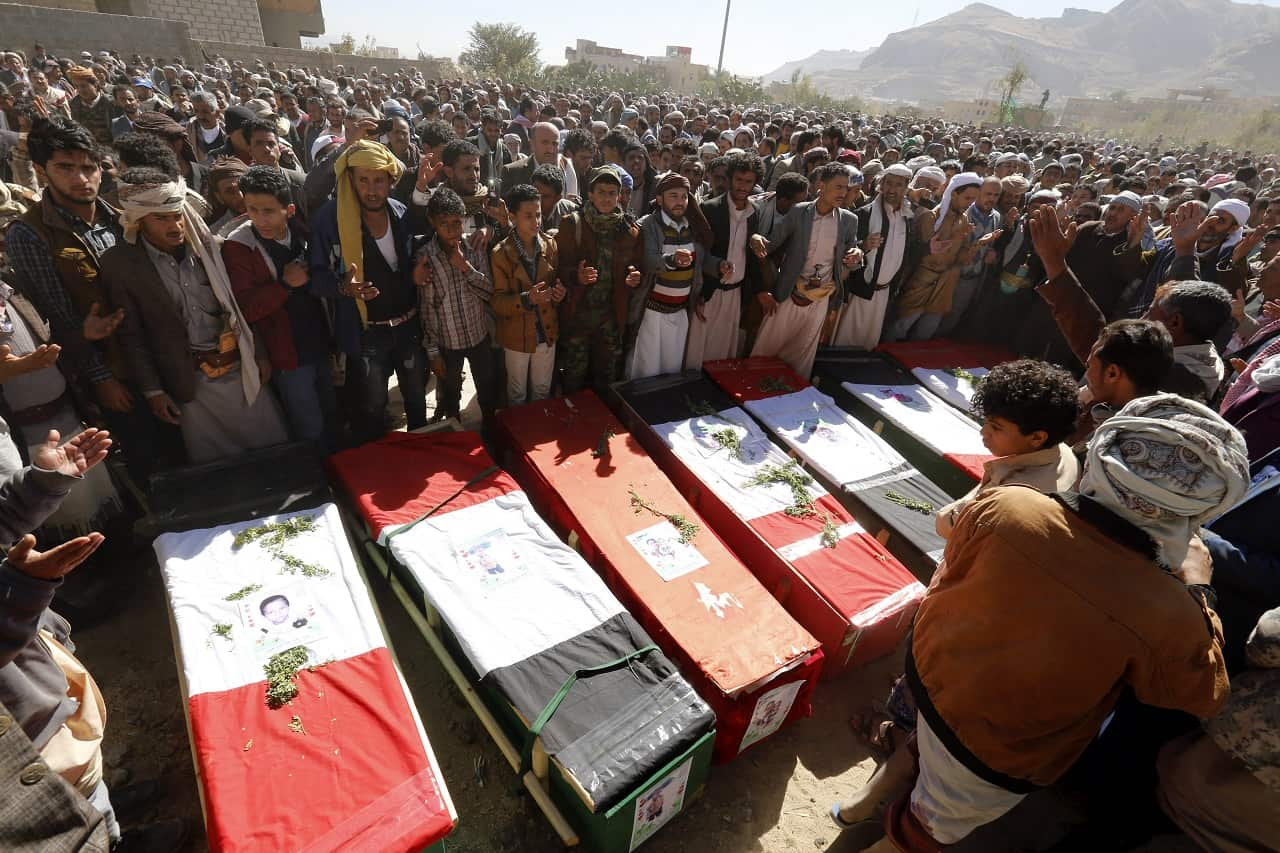Australia is being urged to boost humanitarian aid for millions of starving people in Yemen as the civil war there enters its fourth year.
More than 22 million people are in need of aid across Yemen, where basic services have crumbled and thousands of children are malnourished after food prices soared because of blockades enforced by Saudi Arabia.

Oxfam Australia's humanitarian policy advisor Dr Nicole Bieske says the situation in the middle eastern nation is critical and more aid is needed from countries including Australia to help provide food and water.
Australia provided $20 million in humanitarian funding to Yemen in 2017, a move Dr Bieske said was a welcome start but much more is needed.
"The Australian government needs to continue to closely monitor the crisis, be prepared to commit additional funding and continue to use diplomatic channels to push for peace," Dr Bieske said.
Australia, along with Britain and the United States, has backed Saudi Arabia's blockade of the main port city in Yemen, which plunged into civil war in March 2015.
The unrest has caused widespread damage to the country's infrastructure, crippled its health system and left thousands of public servants without any pay and unable to buy food.
More than 9,000 people, mostly civilians, have been killed and nearly 53,000 injured in what the United Nations has described as the world's worst man-made humanitarian disaster.
Oxfam International estimates about 18 million people are going hungry in Yemen, where families in the country's northwest have told aid workers they can only afford to buy half a bag of wheat a month and need to walk several kilometres each day to collect untreated water.
The aid group's country director Shane Stevenson who has been in Yemen's capital Sanaa for the past year, says he fears the war has become a "forgotten crisis".
"People from Yemen are not able to leave the country and not able to get their message out to the international press or become refugees," he told AAP on Monday, which marked the third anniversary of Yemen's war.
Mr Stevenson said Yemen's public services were dilapidated, schools had closed and water supplies were no longer functioning.
"Many of the middle classes who are teachers, doctors, nursers, engineers, government workers have not been paid for nearly up to two years, so the middle classes have dropped into poverty," he said.

"Two million people have fled their homes, and many of those are living in crumbling buildings or makeshift shacks made of bits of wood and plastic out in the desert."
Oxfam also fears that with the impending start of the wet season, there could be a repeat of the cholera outbreak that killed more than 2,000 people last year.
$350 million urgently needed
The UN urgently needs $350 million for humanitarian projects in Yemen, a senior official said Sunday, insisting it was mere "peanuts" compared with the cost of the country's war.
Geeet Cappelaere, Middle East and North Africa director at the UN children's fund UNICEF, made the comments in Amman, Jordan after a visit to Yemen.
"UNICEF is asking for 2018 alone for its humanitarian programme close to $350 million. That is peanuts compared to the billions of dollars that are currently invested in fighting war," Cappelaere said.
"We are asking for peanuts," he told reporters.
Cappelaere appeared to be making a jibe at US President Donald Trump.
On Tuesday Trump hosted Saudi Crown Prince Mohammed bin Salman at the White House and told his guest the oil-rich kingdom would be spending "peanuts" to purchase billions of dollars worth of military equipment, including aircraft, from the United States.

At the meeting Trump held up a cardboard with pictures of the items and topped with the words "12.5 billion in finalised sales to Saudi Arabia", telling a smiling Salman "that's peanuts to you".
Saudi Arabia leads a coalition in Yemen fighting the Iran-backed Shiite Huthi rebels.
More than 9,200 people have been killed and tens of thousands wounded since the coalition intervened in March 2015.
The United Nations says the war in Yemen has triggered the world's largest humanitarian disaster, with 8.4 million people facing imminent famine, as the country also battles cholera and diphtheria outbreaks.
Cappelaere gave a dire report on conditions in Yemen, and called for the "brutal senseless war on children to stop now".
He said children are bearing the brunt of the conflict in many ways.
"Five children were killed every single day in Yemen in 2017," he said, while "every single girl or boy in Yemen is facing acute humanitarian needs".
In addition, an estimated 80 percent of all Yemenis are living in poverty, Cappelaere said.
"I was shocked last week in Sanaa by the hundreds... thousands of children who are begging in the streets," he said.
"It is incredibly heartbreaking to see very small children stretching out their hands" for some food or money, he said.
The UNICEF regional head said "none of the parties, or those who have influence over the fighting parties, have for a single second... shown the slightest respect for the protection of children".
He also called for the flow of humanitarian aid into Yemen to be unimpeded.
"We are losing precious time discussing conditions that are imposed from all sides, conditions that are preventing us from delivering humanitarian assistance," he said.

